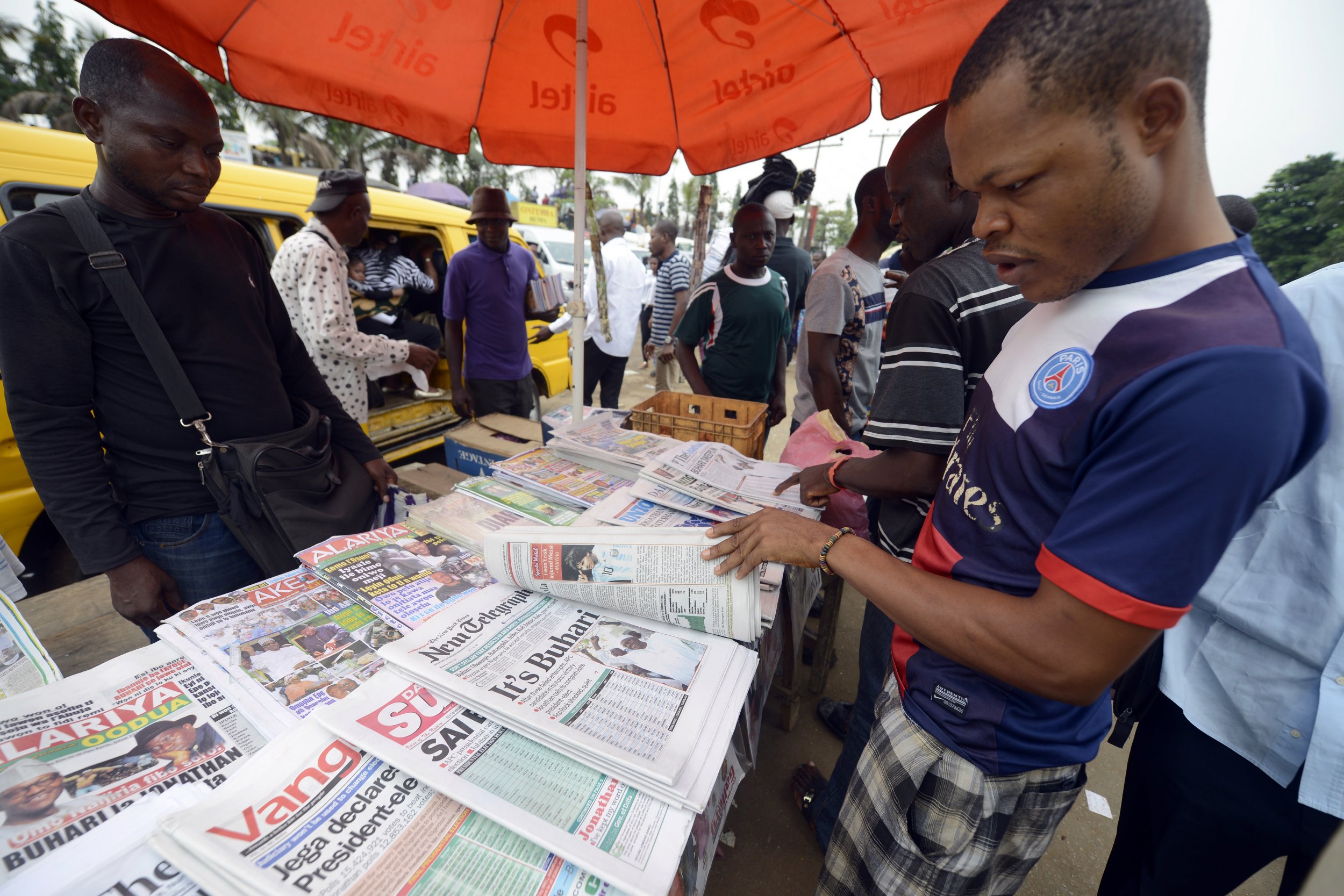
Africa has enough issues to deal with without worrying about Brexit.
But on the eve of the U.K.'s referendum on its membership of the European Union, media outlets across the continent—where scores of countries were formerly colonies of the British Empire—have begun to sit up and take notice.
Newsweek surveys how the African press is responding to the possibility of a Brexit.
Kenya
The governor of the Central Bank of Kenya raised the alarm in May about the potential consequences for emerging markets, including the East African country, should British voters elect to leave the EU. Patrick Njoroge, an ex-senior adviser at the International Monetary Fund, said that such a decision would "affect all of us and there's no insurance, no position we can take to maneuver ourselves to be in a better position." Kenya's Daily Nation picks up on this warning and suggests that a Brexit could lead to negative economic consequences for the country, including increased pressure on the Kenyan shilling and capital flight to possible safe havens such as U.S. treasuries.
South Africa
Political commentator Justice Malala expressed concern that a Brexit could lead to "a Nazi-type radical nationalism, fascism and racism in Europe." Citing other examples such as Marine Le Pen's Front National in France and the right-wing Alternative for Germany, Malala argues that Europe shows increased nationalistic tendencies and that the U.K. leading the EU would solidify that trend, the effects of which would be felt in South Africa."through trade, diplomacy and other ways."
South Africa's economy is currently in dire straits—it contracted by 1.2 percent in the first quarter of 2016, with annual growth predicted to be at just 0.6 percent—and the South African rand is one of the emerging-market currencies most vulnerable to the possible impact of a Brexit, due to the country's high dependence on British lenders for their foreign currency reserves. South Africa's North-West University has also predicted that a Leave vote could take 0.1 percent off the country's annual growth.
Nigeria
Online daily This Day cites research by investment bank FBN Quest that suggests that the British-Nigeria ties would not be likely to be significantly affected if the U.K. votes to leave the EU. Trade volume between the two countries stands at £6 billion ($8.8 billion) and the U.K. Department for International Development invests £222 million ($326 million) in Nigeria per year. Given the strong historical ties between Britain and its former colony, the daily suggests these ties would survive any Brexit vote.
One group in Nigeria with a particular interest in the vote is pro-Biafra activists, who are campaigning for the independence of a region in the country's southeast that was formerly known as Biafra. Speaking to IBTimes U.K., the prime minister of the self-proclaimed Biafran government in exile, Emmanuel Enekwechi, said that pro-Biafrans wanted "the same right" as British people to determine their future via a referendum on the region's status within Nigeria.
Egypt
The North African country's Daily News Egypt worries that the U.K. would seek to consolidate its interests in the Gulf states in the case of a Brexit rather than in Egypt. The news site says that 41.5 percent of Egypt's total foreign direct investment comes from the U.K., and that it would expect this to decline if the U.K. voted to leave the EU.
The U.K.
British Minister for Africa, Conservative MP James Duddridge—who is campaigning for the U.K. to leave the EU—told French outlet RFI that a Brexit would allow the U.K. to "focus more on our bilateral relationships with Africa." Much of the U.K.'s current relationship with African countries is regulated through EU-wide deals such as the Cotonou Agreement, signed in 2000 with the aim of eradicating poverty and promoting development in Africa. According to Duddridge, the EU is a "wholly inappropriate way to define the U.K.-Africa relationship" and leaving the organization would allow Britain to make its own priorities on the continent. An example he cites is the recent 20 percent cut in EU funding to the African Union mission in Somalia (AMISOM), which was opposed by the U.K.
Uncommon Knowledge
Newsweek is committed to challenging conventional wisdom and finding connections in the search for common ground.
Newsweek is committed to challenging conventional wisdom and finding connections in the search for common ground.
About the writer
Conor is a staff writer for Newsweek covering Africa, with a focus on Nigeria, security and conflict.
To read how Newsweek uses AI as a newsroom tool, Click here.








